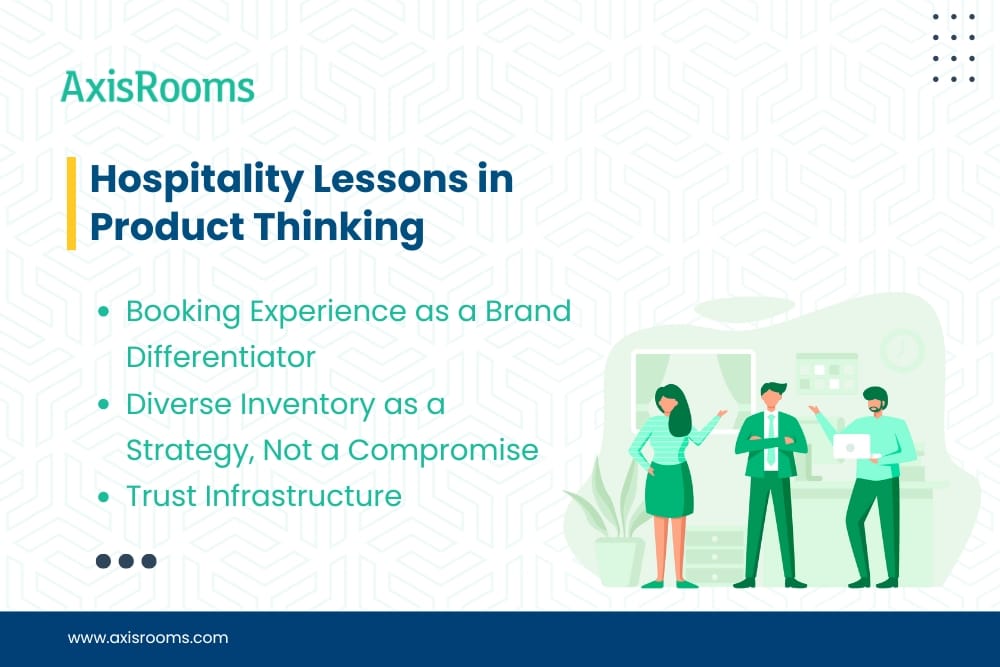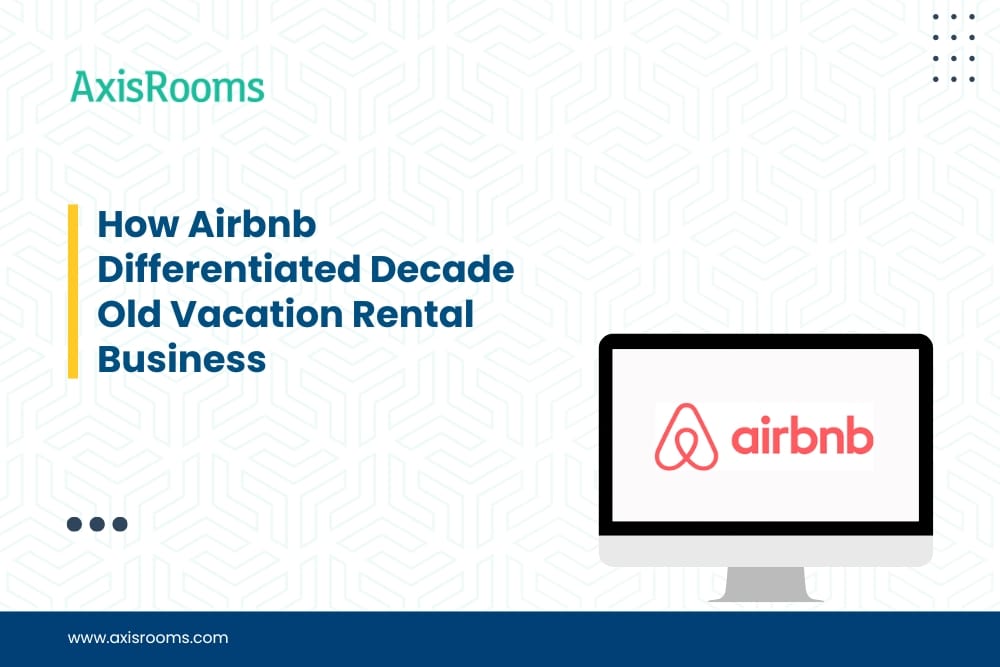Rethinking an Old Model
In hospitality, we often associate innovation with technology or entirely new concepts. But more often, it’s about reimagining how existing models can better serve today's guests. The vacation rental business was a successful but stagnant niche, particularly for long-term leisure stays in the U.S. and Europe. It lacked scalability and mass appeal due to:
- Fragmented destinations
- Inconsistent guest experiences
- Limited trust and booking transparency
For decades, hotels viewed vacation rentals as a separate market with minimal overlap. Airbnb blurred that line—and disrupted the ecosystem.
Airbnb’s Disruption: A Product Reframe, Not a New Category
Airbnb didn’t invent short-term rentals. What they did was refocus the product offering around evolving traveler expectations and tech-enabled convenience.
Key Differentiators Airbnb Introduced:
Why It Worked for Guests—and How Hoteliers Can Learn
Airbnb's model was effective because it combined:
- Affordability (especially in high-demand urban areas)
- Social connection (living with locals)
- Customization and uniqueness
- Trust and safety through community vetting
For hoteliers, this is a reminder that guest experience starts well before check-in—and that travelers today are booking “moments,” not just rooms.
Hospitality Lessons in Product Thinking

Unlike traditional vacation rentals, Airbnb treated their inventory as a product, not just a space. Every listing needed to tell a story, and the booking process needed to feel intuitive.
Here’s how Airbnb’s product thinking disrupted hospitality norms:
1. Booking Experience as a Brand Differentiator
- Fast, app-based, and seamless UX
- Transparent pricing and availability
- Mobile-first design long before it became an industry standard
Hotelier Insight: Whether you’re managing a boutique property or a global chain, your booking interface is part of your brand. It needs to reflect your hospitality philosophy.
2. Diverse Inventory as a Strategy, Not a Compromise
- Airbnb made room sharing respectable
- Catered to solo travelers, digital nomads, families, and long-stay guests
- Launched tiered products like Airbnb Plus and Luxe
Hotelier Insight: Not every guest wants the same type of room. Consider packaging suites, rooms, and even co-living spaces differently, especially for extended stays and remote workers.
3. Trust Infrastructure
- Reviews on both guest and host sides
- Verified photos and standardized communication
- Cancellation policies clearly communicated
Hotelier Insight: Clear, consistent communication builds trust—and loyalty. Reassess your OTA listings, website, and on-site communications for gaps in transparency.
Changing Guest Behavior: Trends That Drove Airbnb’s Rise
Understanding what fueled Airbnb’s growth helps hoteliers spot where the puck is going. These are the shifts Airbnb responded to faster than the hotel industry:
Look at Airbnb's stock performance—it's up 4.28% over the previous month, outperforming the S&P 500's gain of 4.27%. With projected earnings of $4.18 per share and expected revenue of $12.02 billion for the full year, representing increases of 1.7% and 8.29% respectively from the preceding year, Airbnb's market position remains incredibly strong.
What Hoteliers Can Apply Today
The traditional hotel model isn’t obsolete—it just needs to evolve. Here’s a breakdown of what hoteliers can adapt from Airbnb:
Practical Takeaways for Hoteliers:
- Modernize Direct Booking Tools: Compete with OTAs by streamlining your site and mobile experience.
- Diversify Room Types and Packages: Cater to hybrid work travelers, digital nomads, and micro-stays.
- Prioritize Guest Reviews and Responses: Monitor and respond across platforms; encourage storytelling, not just ratings.
- Integrate Local Flavor: Collaborate with local guides, restaurants, or artists to enhance authenticity.
- Leverage Technology for Trust: Contactless check-in, digital room keys, verified guest IDs—these are the new norm.
Product Focus: How AxisRooms Helps Hotels Stay Competitive
AxisRooms Channel Manager enables hoteliers to:
- Distribute inventory in real-time across OTAs, Airbnb, and direct platforms through seamless OTA Integrations
- Prevent overbookings with auto-sync features
- Adjust rates dynamically across all platforms from a single dashboard
- Free up staff time by automating routine distribution tasks
By ensuring rate parity and availability accuracy, hotels can operate with the same agility as top-performing Airbnb hosts—without compromising operational control. These capabilities align perfectly with a well-defined hotel revenue strategy, helping hoteliers boost profitability while delivering better guest experiences.
For independent properties and chains alike, AxisRooms empowers you to treat your hotel rooms as a flexible, responsive product—mirroring the adaptability that makes platforms like Airbnb so powerful.
Final Thoughts
Airbnb’s success wasn’t accidental—it was a product-focused reinvention of a decades-old idea, tuned to modern travelers and enabled by technology. For hoteliers, the lesson is clear: it’s not always about new offerings, but about reimagining the experience around them.
The numbers tell the story: Airbnb now holds 66.41% of the Real Estate Operations industry market share and remains a highly profitable business model in 2025 for those who prepare well, manage smartly, and adapt quickly.
The future of hospitality belongs to those who think like product managers, act like hosts, and stay in sync with changing guest behavior—with platforms like AxisRooms helping bridge the operational gap.


